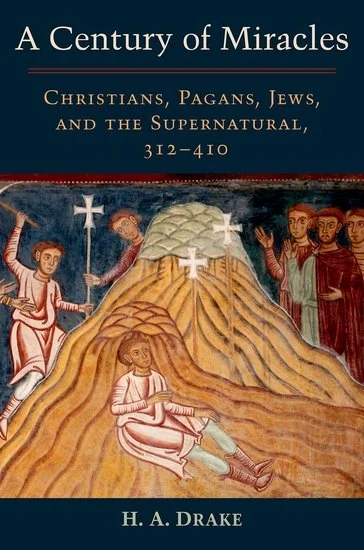Schott’s translation requires dedication on the part of the reader who may need to use the glossary, but also renders the Greek language and rhetorical techniques Eusebius employs more visible.
Read MoreBook Note | Outsider Designations and Boundary Construction in the New Testament
Trebilco sets out to explore how early Christians used outsider designations for boundary maintenance and in-group identity construction.
Read MoreBook Note | A Century of Miracles: Christians, Pagans, Jews, and the Supernatural, 312-410
Framing his book with the two great miracles of Constantine and Theodosius, Drake attempts to tease out exactly how this discourse functioned in late antiquity, especially for Christians.
Read MoreBook Note | Spiritual Taxonomies and Ritual Authority: Platonists, Priests, and Gnostics in the Third Century CE
"Marx-Wolf demonstrates that these Platonist thinkers were closely connected despite the fact that one is a Christian and the other three are non-Christian. To this end, she reads these Platonists not in terms of different social or religious affiliations, but in terms of a shared paideia (2-3). She contends that this common formation explains elements of their thought that might otherwise be “surprising” such as Porphyry’s rejection of animal sacrifice."
Read More![Lucio Fontana, Madonna (1956) [Image courtesy of Flickr]](https://images.squarespace-cdn.com/content/v1/5449167fe4b078c86b41f810/1622988343090-4AM7PUQWZC81Y45Z8TT0/17329001992_c0c2f0cdba_c.jpg)
![Piet Mondriaan, Composition with Red, Yellow, Blue, and Black (1921) Kunstmuseum Den Haag [Wikimedia]](https://images.squarespace-cdn.com/content/v1/5449167fe4b078c86b41f810/1585573389657-QX85KI6N3EGVRARW6V6T/Piet_Mondriaan%2C_1921_-_Composition_en_rouge%2C_jaune%2C_bleu_et_noir.jpg)
